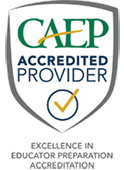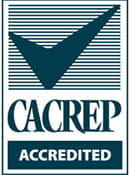Institutional Accreditation
The Higher Learning Commission
230 South LaSalle Street,
Suite 7-500,
Chicago, Illinois 60604
1-800-621-7440
Accreditation is a mark of quality. Walden has been accredited by The Higher Learning Commission (HLC) since 1990. The HLC is an institutional accreditor recognized by the U.S. Department of Education and the Council for Higher Education Accreditation.
Being accredited by the HLC validates that our institution lives its mission, operates with integrity, offers programs that focus on student learning, hires faculty that are academically qualified, and provides the resources and support necessary for our students to succeed. Through the institutional accreditation process, both quality assurance and continuous improvement are evaluated.
In 2023, our accredited status was reaffirmed by HLC.
Our accreditation status:
- Allows access to federal and sometimes state financial aid.1
- Provides confidence in academic quality and standards to those evaluating the transfer of credit from one institution to another.
- Instills confidence in employers when evaluating job credentials of potential employees or determining tuition support for current employees pursuing further education.
Many countries have their own accrediting and regulatory bodies, and degree recognition differs from country to country. If you reside outside of the United States, please review the requirements of your country of residence to confirm recognition of your Walden degree or program.
Specialized Accreditation
Specialized accreditation is given to a college, school, or specific degree program within a university, most often for professional programs that lead to certification or licensure. To receive this type of accreditation, the college, school, or program must demonstrate that it has relevant content, qualified faculty, and adequate resources to meet rigorous accreditation standards set for a specific field, discipline, or profession. By earning this accreditation, the specific program, school, or college demonstrates that it has met the standards that prepare students for advancement in the field.
Walden is proud to have earned specialized accreditations from the following organizations:
Walden University’s Bachelor of Social Work (BSW) and Master of Social Work (MSW) are accredited by the Council on Social Work Education (CSWE), a specialized accrediting body recognized by the Council for Higher Education Accreditation (CHEA). CSWE's Board of Accreditation is responsible for developing standards that define competent preparation for professional social workers and ensuring that social work programs meet these standards.
Walden University’s Richard W. Riley College of Education and Human Sciences has earned national accreditation by demonstrating excellence in the areas of content and pedagogy, clinical experiences, selectivity, program impact, and capacity for continuous improvement from the Council for the Accreditation of Educator Preparation (CAEP, 1140 19th St NW, Suite 400 Washington, DC 20036 (202) 223-0077). CAEP is a CHEA recognized national accreditor for educator preparation. CAEP accreditation is based on a review of The Richard W. Riley College of Education and Human Sciences’ initial teacher preparation programs—the BS in Elementary Education and the Master of Arts in Teaching with a specialization in Special Education—and advanced educator preparation programs—the EdS in Educational Leadership and Administration and the MS in Education with a specialization in Educational Leadership and Administration. Three of these programs were reviewed by Specialized Professional Associations (SPAs), which defines content-area standards for programs, and achieved national recognition: Master of Arts in Teaching with a specialization in Special Education, EdS in Educational Leadership and Administration, and MS in Education with a specialization in Educational Leadership and Administration.
The Accreditation Council for Business Schools and Programs (ACBSP), which is recognized by the Council for Higher Education Accreditation (CHEA), is a leading specialized accreditation association that identifies and supports excellence in business education worldwide. Walden University’s BS in Business Administration (BSBA), Master of Business Administration (MBA), MS in Finance, Doctor of Business Administration (DBA), and PhD in Management programs are accredited by ACBSP. Walden’s BS in Accounting and MS in Accounting programs are also accredited by ACBSP and have earned the organization’s Specialized Accounting Accreditation.
The Council on Education for Public Health (CEPH) Board of Councilors acted at its September 6, 2019, meeting to accredit the Master of Public Health (MPH) program at Walden University for a five-year term, based on an application for accreditation submitted on February 3, 2018. On June 5, 2020, the CEPH Board of Councilors accredited the Doctor of Public Health (DrPH) program at Walden University, after reviewing an accreditation application submitted on April 21, 2020. Based on CEPH procedures and the documentation submitted, the effective accreditation date of both of these programs is February 3, 2018. CEPH is an independent agency recognized by the U.S. Department of Education to accredit schools of public health and programs of public health. CEPH accreditation provides assurance that the program has been evaluated and met accepted public health profession standards in practice, research, and service. For a copy of the final self-study document and/or final accreditation report, please contact the dean of the College of Health Sciences and Public Policy ([email protected]).
The baccalaureate degree program in nursing (BSN), master’s degree program in nursing (MSN), post-graduate APRN certificate program, and Doctor of Nursing Practice (DNP) program at Walden University are accredited by the Commission on Collegiate Nursing Education (www.ccneaccreditation.org).
Council for Accreditation of Counseling and Related Educational Programs (CACREP)—Walden’s PhD in Counselor Education and Supervision; MS in Clinical Mental Health Counseling; MS in School Counseling; MS in Addiction Counseling; and MS in Marriage, Couple, and Family Counseling programs are accredited by the Council for Accreditation of Counseling and Related Educational Programs (CACREP), a specialized accrediting body recognized by the Council for Higher Education Accreditation (CHEA). CACREP accreditation ensures that the content and quality of counselor-preparation master’s and doctoral degree programs have been evaluated and meet standards set by the profession.
The BS in Information Technology program is accredited by the Computing Accreditation Commission of ABET, www.abet.org. ABET is the internationally recognized accreditor for college and university programs in applied science, computing, engineering, and engineering technology. This accreditation reaffirms the quality of Walden's information systems and technology programs and support services, as well as its commitment to continuous assessment and improvement.
Accreditation FAQ
An accredited university is one that meets acceptable levels of quality established by a national or regional accrediting agency recognized by the U.S. Department of Education.* When an institution undergoes the accreditation process, a regional or national accrediting agency approved by the US. Department of Education evaluates the university and conducts peer reviews to assess whether it meets the accreditor’s academic program quality and continuous improvement criteria.
*U.S. Department of Education, Overview of Accreditation in the United States
Accreditation can be divided into two general categories: institutional and specialized or programmatic. Institutional accreditation applies to an institution as a whole, while specialized or programmatic accreditation applies to programs, departments, or schools within an institution.*
*U.S. Department of Education, Overview of Accreditation in the United States
Earning a degree or certificate from an accredited university is a smart choice for many reasons. First, accreditation is a benchmark of quality. Prospective students can be assured the university meets and maintains accepted standards set forth by an independent accrediting body approved by the Department of Education. A university’s accreditation status also affects eligibility for federal financial aid and may be a factor in determining whether credits earned will be accepted for transfer by other institutions. Depending on your career path, you may need to graduate from a university that also offers programs with specialized accreditations in order to seek licensure and certification in your chosen field. Walden University, for example, is regionally accredited at the institutional level by The Higher Learning Commission and holds several specialized accreditations at the college and program levels. For this reason, students should take steps, prior to enrollment, to determine whether their educational preparation will be accepted by any private or governmental entity responsible for licensing or certifying graduates to work in the field for which the educational program is intended.
In order to receive federal student aid from the U.S. Department of Education (ED), you need to enroll in a college or university that is nationally or regionally accredited as an institution.
1For Washington State residents seeking information and resources about student loan repayment or seeking to submit a complaint relating to your student loans or student loan servicer, please visit www.wsac.wa.gov/loan-advocacy or contact the Student Loan Advocate at [email protected].










